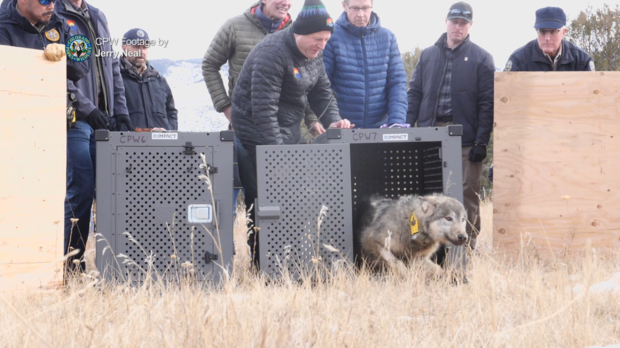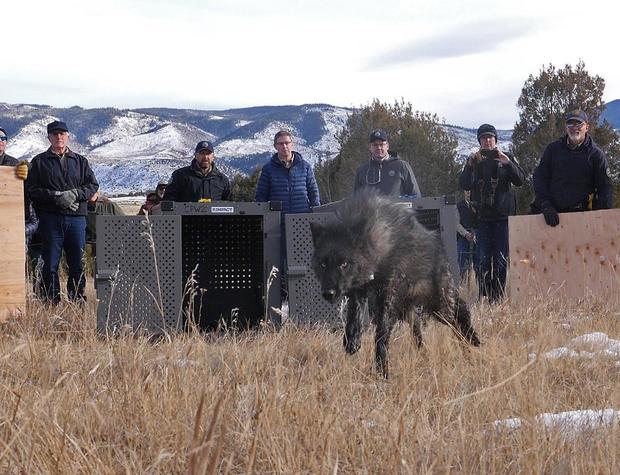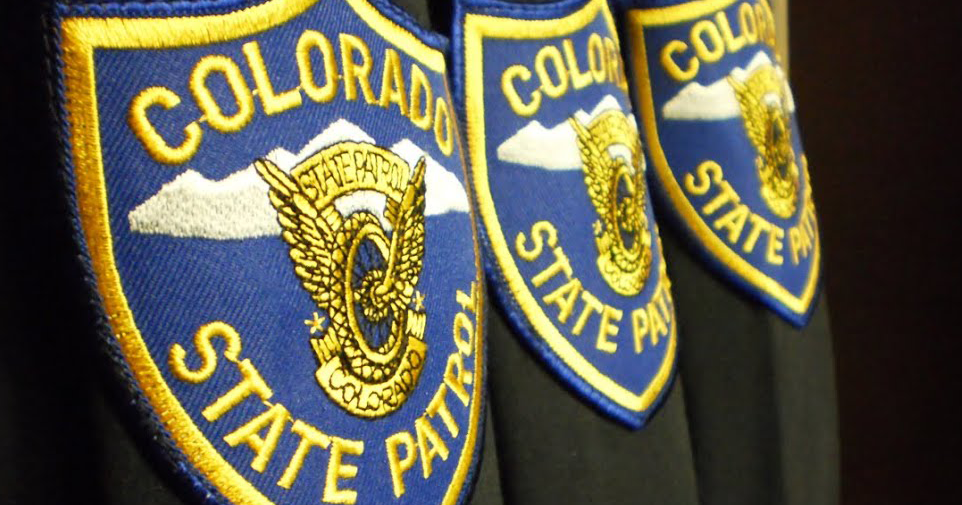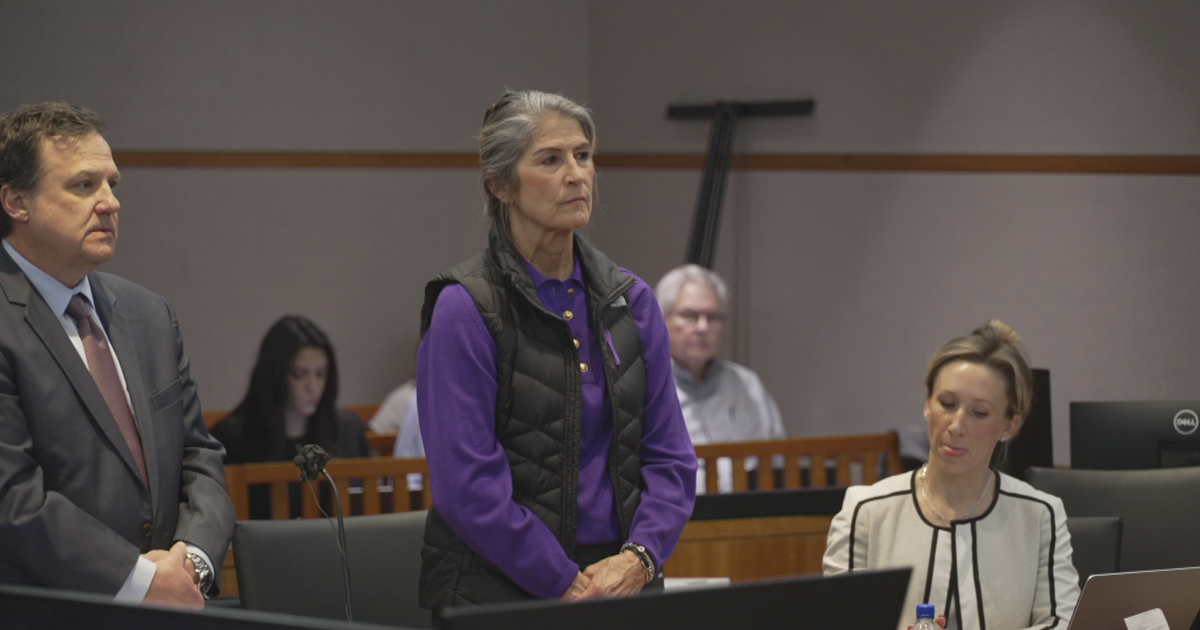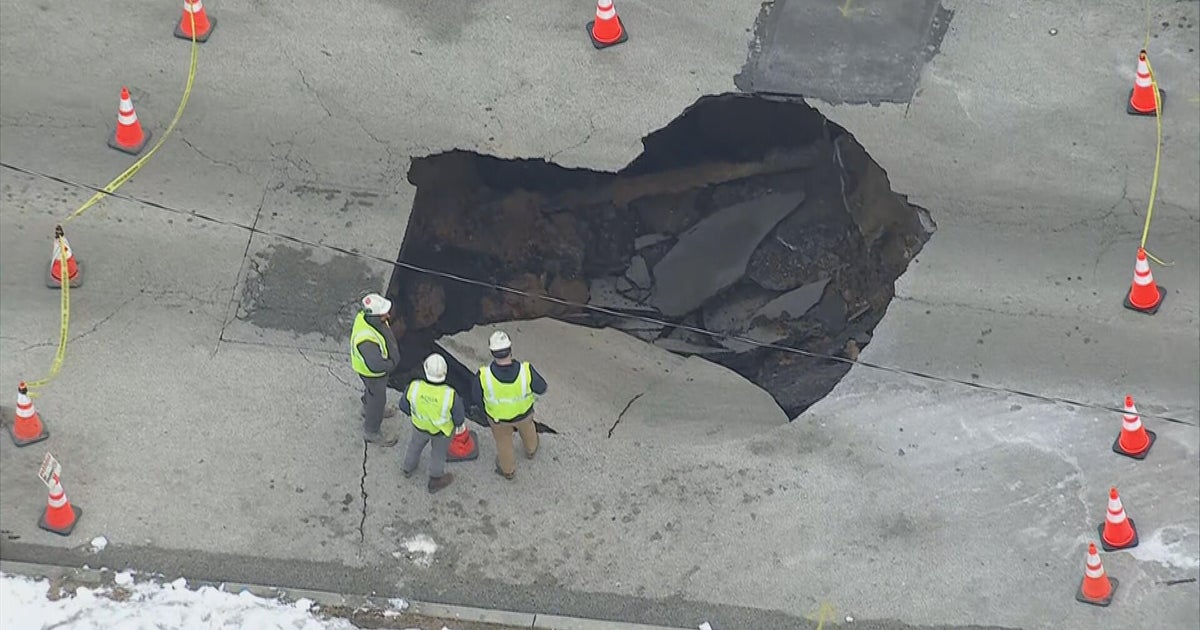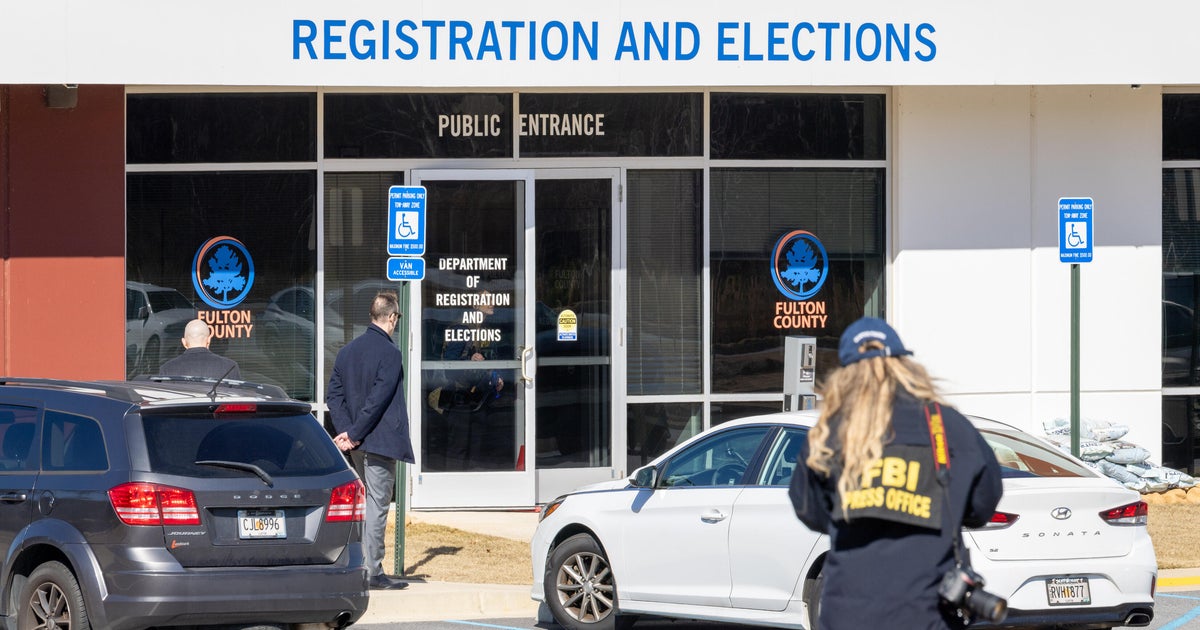Colorado releases 5 wolves under controversial reintroduction program
Colorado Parks and Wildlife officials say they've released five gray wolves onto public land in Colorado on Monday; the culmination of years of planning, preparation, voting and heated debate between conservationists, wildlife experts, ranchers and the general public.
The wolves were captured and evaluated in Oregon and released in Grand County with about 45 people, including Gov. Jared Polis, in attendance for the release, according to CPW.
The wolves were given the following identifications for tracking, according to CPW:
- 2302-OR: Juvenile female, black color, 68 pounds, Five Points Pack
- 2303-OR: Juvenile male, gray color, 76 pounds, Five Points Pack
- 2304-OR: Juvenile female, gray color, 76 pounds, Noregaard Pack
- 2305-OR: Juvenile male, black color, 93 pounds, Noregaard Pack
- 2307-OR: Adult male, gray color, 108 pounds, Wenaha Pack
The plan, finalized by wildlife officials and approved by Colorado voters in a 2020 ballot measure, calls for the reintroduction of 10 to 15 wolves into Colorado per year for the next 5 to 10 years. A spokesperson with CPW did admit they're still excited about the possibility of wolves being donated by the Nez Perce tribe, inside of Idaho, although they had not heard any new movement since the initial announcement.
The wolves were located and trapped in Oregon on Sunday, and transported on Monday, CPW said. Crews in Oregon used both a slow-moving, fixed-wing airplane in front as a spotter and a helicopter in the back. Once the plane was able to pick up tracks, (as well as radio frequencies from the GPS collars on the wolves), they would shoot a dart out of the back of the plane, hit the wolves, and call the helicopter to come around and pick them up.
The reintroduction has been lauded by conservationists but criticized by ranchers and people in rural communities, who say the wolves pose a risk to livestock, wildlife and pets.
RELATED: Wolves could be in Colorado on Monday if lawsuit doesn't throw plan off track
At least two lawsuits were filed to delay or stop the plan prior to the release.
A judge on Friday night had denied a request from the state's cattle industry for a temporary delay to the release.
Another lawsuit aims to do the same with similar wording, but obviously, the wolves are out of their cages at this point. It's important to note that CPW said their tracking collars would be able to allow them to hunt down the released wolves in the event they were forced to re-delay the reintroduction, but that the GPS collars run on a 12-hour delay; it doesn't show live locations.
City and suburb dwellers largely voted to reintroduce the apex predators into the rural areas where prey can include livestock that help drive local economies and big game such as elk that are prized by hunters. Part of that support came from the reports that the reintroduction of wolves, a keystone species, would help balance the wildlife in Colorado as it used to be before wolves were eradicated from the state.
Hunting groups also have raised concerns that wolves will reduce the size of elk herds and other big game animals that the predators eat. But the vast majority of the push against wolves has come from the northern and western parts of the state, like with ranchers near Walden, who have been dealing with predication on their livestock from wolves even before these first five were released.
CPW said it understands the concern and it's not about to simply release wolves and call it a day: "We don't want them to feel like they are in this on their own, CPW is there to make sure we have success from a rural lifestyle and a wolf reintroduction."
That includes making sure communication with CPW officers and rural and agricultural communities is tight and responsive. CPW has already outlined its plan to continue to offer help with tools to dissuade wolves from finding an easy meal on a ranch, which some ranchers CBS News Colorado spoke with believe has a varied success rate.
"We knew it would need to be adaptive, it's not perfect," a board of CPW and Department of Natural Resources representatives explained Monday night. "But it's pretty good and we will keep adapting to make it better and better and we have been listening to many voices."

